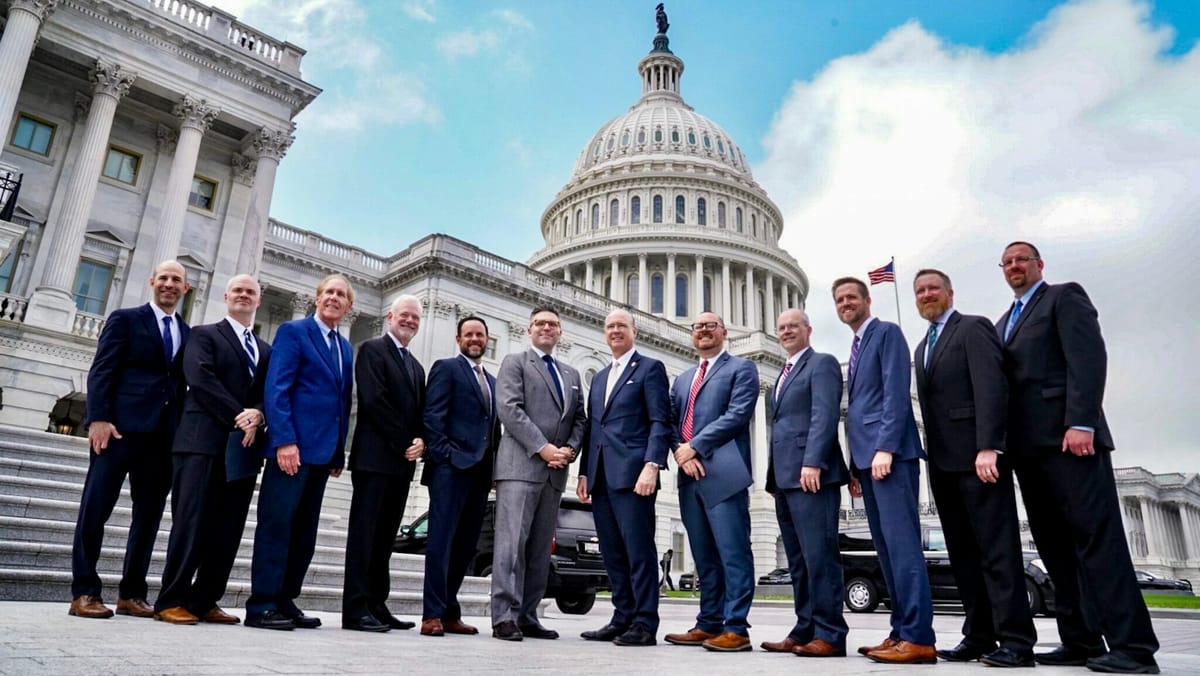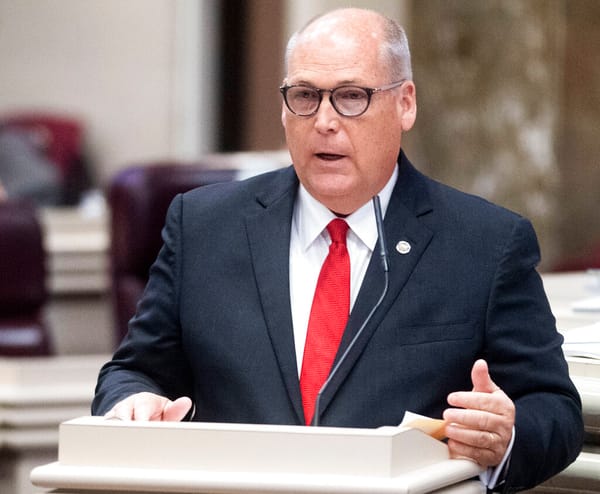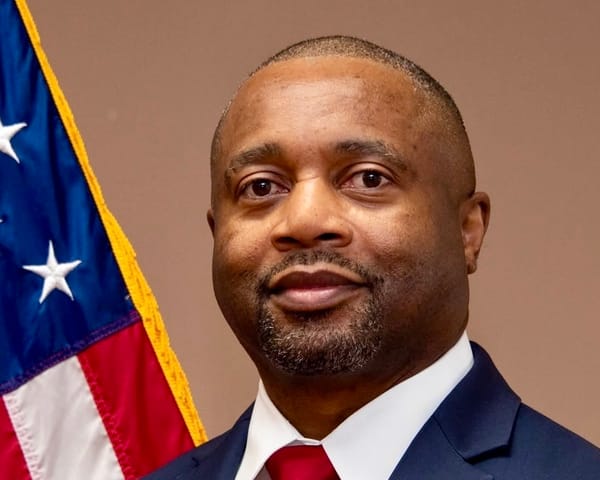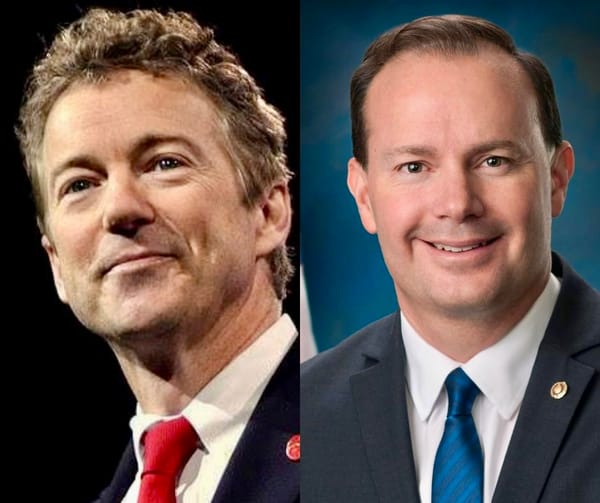Southern Baptists Prepare for Controversy over Future of Ethics & Religious Liberty Commission
Messengers to June 8-12 Annual Meeting will consider a motion to dissolve ERLC

The Southern Baptist Convention (SBC) is girding itself for vigorous debate over the role and relevance of its public policy arm, the Ethics & Religious Liberty Commission (ERLC) at its upcoming Annual Meeting in Dallas from June 8-11.
In May 2025, Albert Mohler, President of Southern Baptist Theological Seminary, publicly questioned the ERLC’s “utility,” going so far as to suggest it may no longer effectively serve the denomination’s mission. This criticism has intensified longstanding debates within the SBC about the ERLC’s direction and influence.
The ERLC was established to represent Southern Baptists in public policy matters, and has been a source of contention for years. Critics like Mohler have argued that it has strayed from its foundational principles, particularly during and after Russell Moore’s Presidency from 2013 to 2021. Moore’s outspoken criticism of then-President Donald Trump led to significant backlash, and even caused some churches to withhold financial support from the SBC.
Under current President Brent Leatherwood, the ERLC has continued to navigate complex political and ethical issues. In July 2024, Leatherwood’s praise of President Joe Biden’s decision not to seek reelection sparked controversy, leading to a brief and contested attempt to oust him from his position. The incident highlighted ongoing divisions within the SBC regarding the ERLC’s leadership and political engagement.
As the SBC’s Annual Meeting approaches, the future of the ERLC remains uncertain. Delegates, known as Messengers, will likely address these concerns, determining whether the Commission will continue in its current form or undergo significant changes.
Recently, ALPolitics.com reported that ten former SBC Presidents issued an open letter urging Messengers to reject any motion to abolish the ERLC during the upcoming SBC Annual Meeting. The letter, released on May 22, acknowledges concerns about the ERLC's direction but emphasizes the importance of reform over elimination.
"We do not write to defend the status quo," the signatories state. "Every entity—including the ERLC—should be open to critique and committed to improvement. But there is a difference between refinement and eradication. A sledgehammer is not the tool for adjusting a mirror."
As the SBC's public policy arm, ERLC is no stranger to controversy. However, recently it has faced repeated calls for its closure. In 2024 a motion to abolish the ERLC failed to gain the necessary support at the SBC Annual Meeting in Indianapolis.
The last three SBC Annual Meetings have been marked by efforts to defund or dismantle the ERLC. Just weeks after the failure of the 2024 motion, confusion deepened when ERLC leaders announced President Brent Leatherwood’s removal—then reversed course the next day.
In 2023, a motion to shift ERLC funding to the SBC’s Abuse Reform Implementation Task Force was ruled out of order. The year before, messengers rejected yet another bid to eliminate the Commission altogether.
Efforts to close the ERLC, or its predecessors, aren’t new. During the 1960s and ’70s, the Christian Life Commission faced similar threats but managed to survive repeated attempts to shut it down.
Despite the controversy which has surrounded it, ERLC continues to have its staunch supporters.
Michael J. Brooks, Pastor of Siluria Baptist Church in Alabaster, recently wrote in The Alabama Baptist about his experience spending two days at ERLC’s DC office.
“I was amazed at the access the ERLC team had to the halls of power,” Brooks wrote. “Our group met with Alabama Representatives Robert Aderholt and Barry Moore, Rep. Scott Franklin (Florida), Rep. Dusty Johnson (South Dakota), Alabama Sen. Katie Britt, Sen. Ted Cruz (Texas) and Sen. Cindy Hyde-Smith (Mississippi). Senate Majority Leader John Thune agreed to a meeting but couldn’t leave the Senate floor that afternoon, so he sent his chief-of-staff to hear our concerns.’
“We also met with Paula White, director of the White House Faith Office, a new initiative of President Trump. White provided a White House tour. I think had the president not been in the Mideast we might’ve been invited to an Oval Office meeting…What I saw was ERLC working to influence the Trump administration in the area of life and other moral issues,” Brooks concluded.
ALPolitics.com recently spoke with Pastor Brooks, and he confirmed what he’d written about the Commission, as well as his support for ERLC under its current leadership.
Kadin Christian, also writing in The Alabama Baptist recently, is another ERLC supporter with first-hand experience with the Commission:
“Instead of working for a church during seminary, I had the unique opportunity to spend nearly the entire duration of my studies as part of the team and ministry at the Ethics & Religious Liberty Commission,” Christian said. “Why do I share this? Because my seminary education and ERLC experience are inseparable.’
“From the very beginning of my education at SBTS, I was surrounded by faithful and exceptional men and women at the ERLC who demonstrated to me what it looks like to apply theological conviction and faith in Jesus to the public square,” he finished.
Obviously, ERLC has its defenders, as well as its critics. It remains to be seen what the majority of Messengers to this year’s SBC Annual Meeting will decide.




